Keynotes + Lightning Speakers
Keynote
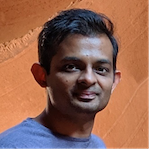
Dhawal Shah
(Founder and CEO, Class Central)
Pandemic Post-mortem: MOOC Platforms' Journey through the Pandemic till Now
Lightning Speakers
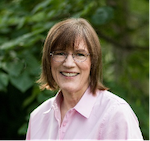
Barbara Oakley
(PhD, Distinguished Professor of Engineering, Oakland University, Michigan, USA)
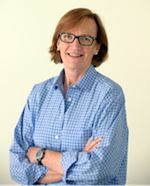
Kathy Pugh
(Senior Vice President, Partnerships, 2U, USA)
The University of the Future: Learner-Centric, Blended, Stackable, Career-Optimized

Carina González
(Full Professor, Department of Computer Engineering and Systems, University of La Laguna, Spain)
Higher education in post-pandemic times: a critical overview

Mary Ellen Wiltrout
(Director of Online and Blended Learning Initiatives, Lecturer in Digital Learning Biology, Massachusetts Institute of Technology, USA)
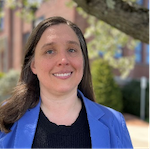
Jessica Sandland
(Lecturer, Department of Materials Science and Engineering (DMSE), MIT, USA)
Next Steps in Open Online Education: MOOCs, Programs, and the Path Forward
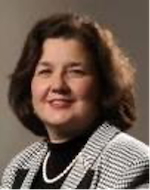
Maria Mercedes Larrondo-Petrie
(PhD, Full professor, Florida Atlantic University, Executive Director of LACCEI, USA)
Need for IEEE Standards for Online Laboratories and Online Classrooms to support MOOCs and SPOCs
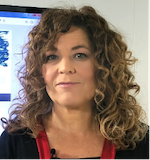
Mercedes Alonso-Ramos
(Spanish National Distance University, UNED, Spain)
The role of MOOCs in the nuclear sector to drive the social change towards innovation and openness
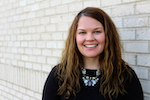
Lisa Bosman
(Assistant Professor, Department of Technology Leadership and Innovation, Purdue University, USA)
Teaching the Entrepreneurial Mindset Across the University – An Integrative Approach

Edmundo Tovar
(PhD, UPM, Present, IEEE Education Society, Spain)
Why proficiency in English as a foreign language affects the success of MOOCs. A case of LWMOOCs
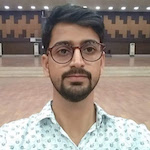
Suparn Padma Patra
(Full Stack Engineer, Class Central)
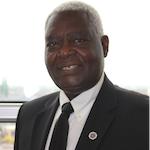
Hamadou Saliah-Hassane
(TELUQ University, Montreal, Canada)
Massive Open Online Laboratories (MOOLS); Why, How and Challenges

Mario Calderón
(Co-Founder & CEO of SkillMapper)
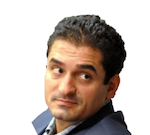
Hamid Doost Mohammadian
(Professor for Sustainability, Theoretician of the 5th wave theory, & Senior Futurist, University of Applied Sciences (FHM), Germany)
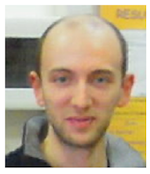
Marco Zappatore
(Engineering for Innovation Department, University of Salento, Italy)
Learning Analytics and MOOLs: there is much more than equipment usage logs
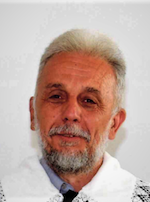
Giorgio Poletti
(PhD, Co-Director of the Laboratory of Epistemology of Education, University of Ferrara, Italy)
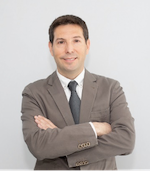
Sergio Martin
(PhD, Associate Professor, UNED, National University for Distance Education, Spain)
Virtual and remote experimentation in massive learning environments
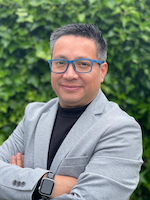
Johann M. Marquez-Barja
(Professor, IDlab, University of Antwerp, in collaboration with imec, Belgium)
Bringing Security and Trustability to Online and Remote Laboratories
Dhawal Shah
Founder and CEO, Class Central
Pandemic Post-mortem: MOOC Platforms' Journey through the Pandemic till Now
Summary available later.
The Speaker
Dhawal Shah: Dhawal discovered a passion for education during his time as a masters student in Computer Science at Georgia Tech. When free online courses from top universities started popping up, Dhawal built a one-page site to keep track of these courses. That site, Class Central, has helped more than 50 million learners to decide which online course to take. Dhawal himself has completed over a dozen courses and has written over 200 articles on online education, read by millions of people every year.
Barbara Oakley
PhD, Distinguished Professor of Engineering, Oakland University, Michigan, USA
Using Neuroscientific Insights Drawn from Movie-Making to Improve Online Teaching and Help Students Make Motivational Shifts in Their Identity
A world of neuroscientific insight has evolved around research into how movies draw our attention and communicate their key elements. Yet this insight has only sparsely been applied to teaching online. This lightning talk will describe mental models, neural schemas, and how good online teaching, informed by insights drawn by neuroscientists from the analysis of movies, allows the efficient transfer of ideas from teacher to student. Neuroscientific insights drawn from movie-making can also help us with one of education’s foundational challenges—helping students make motivational shifts in their identity.
The Speaker
Barbara Oakley: Barbara Oakley is a Distinguished Professor of Engineering at Oakland University in Rochester, Michigan. Her work focuses on the complex relationship between neuroscience and social behavior. She created and teaches Coursera’s “Learning How to Learn,” one of the world’s most popular massive open online course with over four million registered students, along with other popular “Top MOOCs of All Time.” Barb is a New York Times best-selling author who has published in outlets as varied as the Proceedings of the National Academy of Sciences, the Wall Street Journal, and The New York Times—her book A Mind for Numbers has sold over a million copies worldwide. She is a Fellow of both the Institute of Electrical and Electronics Engineers and the American Institute for Medical and Biological Engineering.
Kathy Pugh
Senior Vice President, Partnerships, 2U, USA
The University of the Future: Learner-Centric, Blended, Stackable, Career-Optimized
Expectations across every industry have changed – increasingly, people expect personalized goods and services, delivered on their terms. Across industry sectors, leaders are experimenting with and finding new ways to meet expectations through flexible, on-demand, unbundled and personalized services. It is clear, higher education must to do the same. At the same time, student demographics continue to rapidly evolve. Now more than ever, adult learners must continuously upskill and reskill to stay relevant in the modern workplace. They (and their employers) are seeking relevant, workforce-aligned education. Join Kathy Pugh, SVP, University Partnerships, edX/2U, to discuss the trends driving and shaping the way that higher education is responding to a need for learner centricity and to learn more about how to embrace flexible, unbundled, and on-demand learning that meets the needs of today’s learners.
The Speaker
Kathy Pugh: As SVP of Partnerships, Kathy leads a team dedicated to developing long term partner relationships, delivering exceptional service and growth within her portfolio. Prior to becoming a part of 2U, Kathy was the founding executive who built edX’s partnership and learner success strategies and operations. She was also responsible for developing and continually improving the organization's course and program strategies. Before joining edX in 2013, Kathy held executive leadership positions at Core Security, Charles River Development and Advent Software where she was responsible for account management and growth, global services and customer success. When she is not at edX, Kathy enjoys time with her family, any and all racquet sports and spending time outdoors. She holds a B.A. in economics from the College of the Holy Cross.
Carina González
Full Professor, Department of Computer Engineering and Systems, University of La Laguna, Spain
Higher education in post-pandemic times: a critical overview
The Covid-19 pandemic has meant a before and after in university education. The digital transformation has been disruptive in many ways, filling physical spaces with technological equipment and creating new virtual environments or strengthening existing ones. However, although virtual campuses, MOOCs or other digital technologies were already precedents for virtual education, they encountered different resistances. One of them was the lack of appropriate active methodologies for online or hybrid modalities and the difficulties in online assessment and personalization. This conference will present different educational paradigms that emerged in the pandemic, as well as different technological advances that allow supporting the training processes at the university level.
The Speaker
Carina González: Dr. Carina González is Full Professor at the Department of Computer Engineering and Systems in the University of La Laguna, Spain. She got her Ph.D. in Computer Science (2021), specialized in AI and HCI techniques applied to people with disabilities and Ph.D. in Education and Social Sciente (2020). For over 20 years she has put her focus on the field of the technologies applied to education and human-computer interaction (intelligent tutoring systems, intelligent interfaces, human-centered design, UX, serious games, gamification, e-learning, digital culture). She has published widely on these topics. Currently, she is the Director of the Women Studies Research Institute and the Digital Culture. Also, she has been the head of the Educational Innovation and ICT and the Digital Education Service at ULL, creating this service for the University from scratch (2005-2011; 2015-2019). She was co-chair of the conference IEEE EDUCON 2018 (Engineering Education Conference)organized by IEEE education Society, among other international conferences. She is Associate Editor of the IEEE Transactions on Education and Editor in Chief of IEEE-RITA (Revista Iberoamericana de Tecnologías del Aprendizaje) of the Spanish Chapter of the IEEE Education Society. Also, she is a Senior member of IEEE.
Mary Ellen Wiltrout
Director of Online and Blended Learning Initiatives, Lecturer in Digital Learning Biology, Massachusetts Institute of Technology, USA
The Significance of Assessment Design in MOOCs
In this lightning talk, I will address the challenges of assessment and certification in MOOCs while maintaining a high-quality learning experience. I will present the data-based techniques to course design and assessment that balance maximizing the potential to learn and minimizing the temptation to use dishonest methods to earn a credential. I will describe a case study in how we have applied one assessment model in the Open edX platform for others to potentially use in their courses.
The Speaker
Mary Ellen Wiltrout: Mary Ellen has led the execution of the digital learning strategy for the Department of Biology at MIT for nine years. As a Lecturer and Director of Online and Blended Learning Initiatives, she trains and mentors instructors, postdoctoral fellows, and students, manages the digital learning projects for the department including MOOCs and hybrid learning experiences, and conducts research on the design of digital learning experiences. She and the group created three of the MOOCs on the list of the best online courses of all-time according to ClassCentral. Prior to her work with MOOCs, she completed her PhD in Biology from MIT and taught at Harvard University.
Jessica Sandland
Lecturer, Department of Materials Science and Engineering (DMSE), MIT, USA
Next Steps in Open Online Education: MOOCs, Programs, and the Path Forward
In 2012, the New York Times declared it “The Year of the MOOC.” A decade on, open online courses have had the opportunity to evolve and mature. In this lightening talk, we will explore the various roles that MOOCs are playing in the current educational ecosystem, and we will consider the role that these resources can play as we look to the future.
The Speaker
Jessica Sandland: Jessica Sandland is a lecturer in MIT's department of materials science and engineering (DMSE) and an MITx digital learning scientist where she leads online learning initiatives in DMSE, developing blended learning resources for residential students and creating MOOCs for a global audience of learners. She has coordinated the development of DMSE’s online courses on a wide variety of topics, including innovation and commercialization; mechanical behavior of materials; structure of materials; electrical, optical and magnetic materials and devices; and cellular solids. Dr. Sandland earned her SB in materials science and engineering and her PhD in electronic materials from MIT.
Maria Mercedes Larrondo-Petrie
PhD, Full professor, Florida Atlantic University, Executive Director of LACCEI (Latin American and Caribbean Consortium of Engineering Institutions), USA
Need for IEEE Standards for Online Laboratories and Online Classrooms to support MOOCs and SPOCs
To fully support Engineering courses MOOCs and SPOCs need to offer online laboratories. Currently many offer access to simulations and virtual laboratories but few offer access to remote physical laboratory stations, and fewer offer the ability to compose laboratory experiments to fully interact with remote stations. The IEEE Education Society has sponsored the development of IEEE Standard 1876-2019 – Networked Smart Learning Objects for Online Laboratories which provides a framework to support interoperability and sustainability, among other things. It is now developing the IEEE P2834 Standard Working Group for Secure and Trusted e-Learning Systems. There are many other standards under development, MOOC and SPOC practitioners and providers need to be involved in the development of these standards to ensure that non-functional requirements necessary to make the online laboratories and online classrooms secure, safe, accessible, sustainable, and scalable will be in place in the near future to address in a timely and equitable fashion the learning gap brought about because of the school closures during the pandemic.
The Speaker
Maria Mercedes Larrondo-Petrie: Maria Mercedes Larrondo-Petrie has a PhD in Computer Engineering and is a full professor at Florida Atlantic University in the USA. She is Executive Director of LACCEI (Latin American and Caribbean Consortium of Engineering Institutions), is a member of the IEEE Engineering Society Standards Committee, is a member of the American Society of Engineering Education International Activities Committee, is chair of the Experts Committee of ENTER International Engineering Educator Registry and has been registered as a professional Engineering Educator. She has been inducted into the Pan-American Academy of Engineering.
Mercedes Alonso-Ramos
Spanish National Distance University, UNED, Spain
The role of MOOCs in the nuclear sector to drive the social change towards innovation and openness
This talk will cover an overview of an extensive research work performed within the nuclear sector. The need for a cultural change towards openness and innovation in education has driven a multidisciplinary approach to bring to the nuclear sector those changes already accomplished in other sectors. The different research areas have covered important needs of the sector, framed in a Nuclear Knowledge Management view. The importance of MOOCs as change drivers has been experienced with development of 3 small MOOCs on Nuclear Safety Culture within a European project. These MOOCs, developed in collaboration with the industry, have also been used in assignments of nuclear bachelor´s and master´s courses, linked to a University Education Innovation Project.
The Speaker
Mercedes Alonso-Ramos: M. Sc. in Energy Engineering at UPM University (Madrid Polytechnical University), with a Research Competence on advanced models for inventory calculations in fusion installations. More than 20 years of experience teaching Nuclear Engineering, using the distance teaching methodology at the Spanish National Distance University (UNED), and she has more than 10 years of experience in innovation in education, training and information in the nuclear sector, focused in new learning methodologies, open education and MOOCs, and cultural change within the framework of Nuclear Knowledge Management. Actually she is assistant lecturer in Nuclear engineering at UNED, she coordinates the Group INOOC-UNED (Innovative Nuclear Open Online Culture), and she is finishing her PhD Thesis on the study and implementation of new tools and methodologies for education, training and information adapted to the nuclear engineering field.
Lisa Bosman
Assistant Professor, Department of Technology Leadership and Innovation, Purdue University, USA
Teaching the Entrepreneurial Mindset Across the University – An Integrative Approach
Teaching entrepreneurial skills is a staple in business schools. But it can benefit all students and faculty – including the disciplines of engineering, computer science, agriculture and even the arts. In this talk, Dr. Lisa Bosman (Purdue University Assistant Professor and founder of iAGREE Labs - Inclusive, Applied, and Grounded Research in Entrepreneurially-Minded Education) provides an overview of why and how university faculty from disciplines across campus can contribute to and drive innovation and entrepreneurship efforts, with a specific focus on the online teaching environment.
The Speaker
Lisa Bosman: Dr. Lisa Bosman, PhD in Industrial Engineering, is an Assistant Professor in the Department of Technology Leadership and Innovation at Purdue University. Her desire to increase STEM education accessibility and attainment has resulted in her founding of the Purdue University iAGREE Labs (www.iagree.org). Dr. Bosman has authored over 60 publications including two recent books: “Teaching the Entrepreneurial Mindset Across the University: An Integrative Approach” (Springer-Verlag GmbH, 2021) and “Teaching the Entrepreneurial Mindset to engineers (Springer-Verlag GmbH, 2018). In addition, she has obtained over $2M USD in research funding, has been an invited speaker and workshop facilitator for over twenty national and international engagements, and currently serves as an engineering councilor for the Council of Undergraduate Research (3-year commitment, 2019-2022), and as a division officer for the American Society of Engineering Education (5-year commitment, 2018-2023).
Edmundo Tovar
PhD, UPM, Present, IEEE Education Society, Spain
Why proficiency in English as a foreign language affects the success of MOOCs. A case of LWMOOCs
The importance of mastering foreign language is one of the keys to achieving the learning results of MOOCs, in profiles in which the learner is not a native speaker of the language in which the MOOC is delivered. Knowledge of this factor is important for designers and providers of this type of course. This is one of the reasons why foreign language skills are in much demand and the need for related online courses is widespread. At this point, Language MOOCs constitute an interactive language learning environment offering unlimited entry. Speak English MOOC- English Language MOOC - Improve Speaking Skills Project, an Erasmus+ Strategic Partnership Project in Adult Education, is a Language MOOC which offers an autonomous learning environment full of authentic educational materials for adults. As is known, among all four skills in language, speaking is considered by far the most difficult. Therefore, Speak English-MOOC is innovative and helpful as it offers practical suggestions on the topics that the target group defines most necessary for them while speaking.
The Speaker
Edmundo Tovar: Edmundo Tovar, received the computer engineering degree and Ph.D. degree in informatics from the Madrid Technical University (Universidad Politécnica de Madrid, UPM), Madrid, Spain, in 1986 and 1994, respectively. He is currently with the UPM as a Professor of information technology in enterprise. He has served as an elected member of the Board of Directors of the OpenCourseWare Consortium (2009–2013), Executive Director of the OCW Office of the UPM (2008–2012), and Executive Director of the Open Education Office at UPM (2013-2016). He is currently President of IEEE Education Society (2021-2022). He leads the UPM Research Group REFERENT in technologies applied to Open Education.
Suparn Padma Patra
Full Stack Engineer, Class Central
Unearthing secrets of online course platforms
Major online course platforms can be mysterious and opaque. They do not always provide an easy way for learners to discover courses based on certain features. Sometimes these features are only revealed once the learner enrolls in the course. This is where Class Central’s Suparn comes in. In this talk he will walk you through case studies for three major course platforms: Coursera, LinkedIn Learning, and edX. For each of these cases, he will share how he reverse engineered their websites to unravel their secrets.
The Speaker
Suparn Padma Patra: Suparn developed an interest in MOOCs through a project he worked on during his MSc in Artificial Intelligence at the Central University of Rajasthan, India. His love of teaching and learning started much earlier. Suparn has worked as a teacher at DPS Gaya and holds bachelor's degrees, in both Science and Education, from St. Xavier's College, Ranchi. Suparn joined the Class Central Engineering team in April 2019 and primarily focuses on keeping Class Central’s catalog up-to-date by maintaining and writing scrapers that collect the course metadata from different providers.
Hamadou Saliah-Hassane
TELUQ University, Montreal, Canada
Massive Open Online Laboratories (MOOLS); Why, How and Challenges
In-class or distance learning in electrical and computer engineering, as in most other science subjects, requires that learners deepen their knowledge through hands-on laboratory work, an essential complementary activity. The last two decades have seen the adoption or implementation of the concept of distance laboratories in many sciences, engineering and technology educational institutions. Massification in higher education combined with the need for hands-on learning activities has forced the use of Massive Open Online Laboratories (MOOLS). In addition to briefly presenting the reasons for this choice, using examples, we will describe how to properly implement MOOLS in an electrical and computer engineering learning context. We will also list the many technological, logistical, security and pedagogical challenges that need to be addressed to ensure the uses, sometimes with relatively acceptable results.
The Speaker
Hamadou Saliah-Hassane: Professor Saliah-Hassane earned a PhD in Electrical and Computer Engineering from McGill University in Montreal, a Bachelor and Master of Applied Science degree from École Polytechnique de Montréal, Canada. He is currently teaching Informatics and Computer Networks and Security at TELUQ University in Montreal where he is carrying research on Intelligent Distributed Systems and Mobile Robotics. Professor Saliah-Hassane is the Chair of the WG on IEEE Standard 1876™ - 2019 on “Networked Smart Learning Objects for Online Laboratories”. He was the Past Chair of IEEE Education Society Standards Committee Chair and the Past Chair of the Working Group of the joint standardization activity on “Secure and Trusted Learning Systems” sponsored by IEEE Education Society, IEEE Industrial Electronics Society (IES) and IEEE Computer Society Learning Technology Standards Committee (CS/LTSC).
Mario Calderón
Co-Founder & CEO of SkillMapper
Analyzing millions of reviews to overcome the paradox of choice in online courses and the Conscious Course Consumption movement (CCC)
Millions of people face challenges when choosing online courses. Arguably, we have reached the point where more online courses aren't necessarily better but overwhelming. More and more people are pushed to purchase online courses in a rather impulsive way. Courses that they will never finish and likely not even open. What if we turn to data and the wisdom of crowds to build a more reliable and trustworthy system of quality? What if we ensure this system becomes a standard for all major ed-techs before the regulation comes into play? In this lightning talk, we will explore an approach to leverage current data sets to make high-quality courses more accessible and ultimately discuss the roles and responsibilities of the different actors in the MOOC ecosystem in making sure learners are investing money and time in high-quality courses and don't fall for predatory marketing practices.
The Speaker
Mario Calderón: Mario Calderón is the Co-Founder & CEO of SkillMapper, a global learning hub that leverages proprietary AI to guide young professionals toward finding the best online education sources while streamlining their job-hunting process. In early 2021, he co-founded SkillMapper with a mission to empower young professionals to achieve their full potential through education. Throughout this transition, Mario co-authored the scientific paper Large Scale Analysis of Open MOOC Reviews to Support Learners' Course Selection, currently submitted to the journal Expert Systems With Applications. Before SkillMapper, Mario worked in Data Science and Partnerships for nine years at Meta (former Facebook). He was among the first Peruvians to join this juggernaut in 2012 and worked across various teams during his stints, from operations to partnerships. During his tenure, he also built a data visualization and analytics workshop. One of these training was later turned into an online course co-authored with Crehana (the largest ed-tech in LATAM). This course rapidly became a top-seller with over 4.8k students and ratings of around 4.8 stars (out of 5) today. This experience gave him insights into the ed-tech industry, shaping SkillMapper’s thesis.
Hamid Doost Mohammadian
Professor for Sustainability, Theoretician of the 5th wave theory, & Senior Futurist, University of Applied Sciences (FHM), Germany
Future Education and Digital Transformation in Academic Society and Innovative Ecosystems From the Epidemic-Pandemic-to the Remote World Through the 5th Wave Theory
Science ecosystem has been evolved during modern human life. Teaching, learning, education, and doing research connecting elements of this ecosystem include students, professors, administrators and researchers from academia and industry. Different learning systems have been developed in different countries results in various science ecosystems that interact with each other. While the main goals are the same and there are many collaborations between them, but their reactions are different during the world paradigm shifts such as ICTs, IoTs and the Internet revolution and recently emerged Covid-19 Pandemic. In this speech I am going to talk and share some experiences of different education systems. This may help developed and developing courtiers to tune current or determine new strategies, especially when the world faces with the crisis of Covid-19 Pandemic, from the epidemic-pandemic-to the remote world. I will discuss about the digital transformation in academic society and innovative ecosystems in the world beyond Covid19-Pandemic through the 5th wave theory.
The Speaker
Hamid Doost Mohammadian: Prof. Dr. Dr. h.c. Hamid Doost Mohammadian (Germany) is a professor for international sustainability management who is focus on interdisciplinary studies and senior Futurist in Germany with an engineering background in Computer and Industrial Engineering. He is director for international management, consultant to president and head of FHM German Institute of SMEs (F-GISI) at University of Applied Sciences (FHM) in Germany which is focusing on Small Medium Sized Enterprises (SMEs). He is also an external Professor and supervisor at some international high rank universities like the TU-Campus EUREF gGmbH (TU Berlin) in the field of sustainable business, building, energy, mobility, risk, and engineering management. Prof. Hamid Doost Mohammadian is a visiting professor at Academy for Cultural Diplomacy (ICD) in Berlin and PhD supervisor/examiner of FHM joint doctoral programs powered by two British State Universities. In addition, he is Professor and Board Member at London Institute of Skills Development (LISD), UK and Board Member at Swiss Institute of Cultural Diplomacy. Since 2017, he has been contributing as an academic leader to Erasmus Plus project named: ”Internet of Energy (IoE)-Education/Qualification(EQ)” in Germany and 6 EU partners. Besides he is a Futurist and Theoretician for the 5th Wave/Tomorrow Age Theory (Theory of Comprehensive Everything) which is concerning sustainability and future study for readiness for the future concern and it is to measure the readiness to change into the new age/wave we are just entering., i-Sustainability Plus Theory which is made of combination of trinity; open innovation, sustainability and future of high technologies (5th technologies) as well as digitalization and DCT (Doost Cultural Theory) which is concerning cultural adaptation through the multiple regression, EQ, Conversational Intelligence (CI) and LQ. He has invented, introduced, and developed several models, concepts, methods, and theories in Hybrid Knowledge which were reflected in several books, scientific articles and speeches like Hybrid SMEs/SME 5.0/Tomorrow’s SMEs concept which is a new concept for SMEs for future concern and 3D SociEcoEnvironment SMEs models which are focusing on the CSR side of sustainable business and ‘’7PS and 9PSG models’’ which is focusing on seven pillars of sustainability and nine pillars of sustainable governance. Professor Hamid Doost Mohammadian as Conference Chairman and Keynote Speaker has held more than 550 speeches, workshops, webinars, participated in various Global and international conferences, dedicated to interdisciplinary studies, sustainability, culture, management, CSR, blue-green economy, entrepreneurship, innovation, and digitalization. Finally, he as an author, a conference chairman, keynote speaker, author, influencer and member of editorial board at more than 20 high ranked international scientific journals, including Swiss and US ones. Prior to his academic life he has been working as management consultant for industrial and political sectors.
Marco Zappatore
Engineering for Innovation Department, University of Salento, Italy
Learning Analytics and MOOLs: there is much more than equipment usage logs
When dealing with online laboratories (either remote or virtual), it is crucial to monitor experiment activities and their outcomes closely, as well as to control how students access to these labs. A similar need also exists for evaluating student learning patterns and results, at both the individual and group level, to propose customized study paths tailored contents. The research in the field of Learning Analytics has been very prolific in the recent decade, especially in the STEM area, and this scenario becomes more challenging when online labs are offered as MOOLs (Massive Open Online Laboratories), which are large-scale and cloud-based infrastructure allowing students to access catalogs of online experiments on several topics as normally happens with traditional courses accessible via MOOCs (Massive Open Online Courses). This talk focuses on the most relevant aspects of LA for MOOLs in terms of data requirements and data-related challenges, by examining four aspects that are tightly related to LA: 1) data models and catalogs, 2) data quality and scope, 3) data privacy and ethics, and 4) data visualizations. The resulting considerations can be used as a set of guidelines to take into account when designing a MOOL.
The Speaker
Marco Zappatore: Marco Zappatore is a researcher in Information Systems and Databases at the Engineering for Innovation Department, University of Salento (Lecce, Italy). He is also adjunct professor of Computer-Assisted Translation at the Department of Humanities of the same University. He got a Master degree in Communication Engineering and a Ph.D. in Information Engineering from the same University. His main research interests are focused on data and knowledge management, Semantic Web and Linked (open) Data, new learning paradigms in engineering education, computer-assisted translation and machine translation. He has co-authored more than 80 papers for national and international journals and conferences.
Giorgio Poletti
PhD, Co-Director of the Laboratory of Epistemology of Education, University of Ferrara, Italy
MOOCs in the infosphere
The network as a paradigm and model that has changed the style and idea of interactivity, cognitive styles and the concept of person and information, acting as a catalyst and primary cause of what the philosophy of information defines the infosphere, the habitat in which we live. The pandemic as a moment of change not only for our way of life but also for our way of understanding and analyzing the reality that surrounds us. In this methodological and technological context, MOOCs see their educational and relational potential, as well as interaction and connection with reality, increasingly becoming a model and a training tool and a place of learning and experimentation.
The Speaker
Giorgio Poletti: Giorgio Poletti, researcher of Experimental Pedagogy, with National Scientific Qualification to the functions of Associate Professor in Didactic, Special Pedagogy and Educational Research, PhD in Educational Sciences. Co-Director of the Laboratory of Epistemology of Education of the University of Ferrara (Italy), he collaborates with numerous foreign universities. Graduated in Mathematics he developed a thesis on mathematical models working at CERN (European Center for Nuclear Research) in Geneva. His research focuses on the structuring of knowledge, ontologies, and metalanguages with reference to epistemological foundations and cognitive styles. He deals with educational robotics and educational technologies, studying their relationship with the processes of knowledge construction.
Sergio Martin
PhD, Associate Professor, UNED, National University for Distance Education, Spain
Virtual and remote experimentation in massive learning environments
This Lightning talk presents the challenges in the creation of MOOCs including virtual and remote laboratories to support practical experimentation.
The Speaker
Sergio Martin: Sergio Martin is Associate Professor at UNED (National University for Distance Education, Spain). He is PhD by the Electrical and Computer Engineering Department of the Industrial Engineering School of UNED. He is Computer Engineer in Distributed Applications & Systems by the Carlos III University of Madrid. He teaches subjects related to microelectronics and digital electronics since 2007 in the Industrial Engineering School of UNED. He has participated since 2002 in national and international research projects related to mobile devices, Internet of Things, and location-based technologies as well as in projects related to "e-learning", virtual and remote labs, and new technologies applied to distance education. He has published more than 200 papers both in international journals and conferences. He is IEEE senior member and member of IEEE HKN Honor Society.
Johann M. Marquez-Barja
Professor, IDlab, University of Antwerp, in collaboration with imec, Belgium
Bringing Security and Trustability to Online and Remote Laboratories
The P2834 - Standard for Secure and Trusted Learning Systems Working Group is focused on developing a standard that enables secured and trusted educational systems. Among those learning/educational systems, MOOCs play an extremely relevant role not only in delivering educational material and being an educational platform but also in being a means to enable online and remote lab; therefore the P2834 Standard is also focusing on securing the interplay of Online labs and MOOCs. This talk presents the initial steps of the P2834 Standard.
The Speaker
Johann M. Marquez-Barja: Prof. Marquez-Barja is a Full Professor at the University of Antwerp, as well as a Professor in IMEC, Belgium. He is leading the Flexible Networking Group at IDLab/imec Antwerp. He was and is involved in several European research projects with relevant roles, exploring remote experimentation for wired and wireless networks, 5G and smart mobility (drones, vehicles, and vessels). He is a member of ACM, and a Senior member of the IEEE Communications Society, IEEE Vehicular Technology Society, and IEEE Education Society where he participates in the board of the Standards Committee. His main research interests are: 5G advanced architectures including edge computing; flexible and programmable future end-to-end networks; IoT communications and applications. He is also interested in vehicular communications, mobility, and smart cities deployments. Prof. Marquez-Barja is co-leading the Citylab Smart City testbed, part of the City of Things programme, and the SmartHighway testbed, both located in Antwerp, Belgium. Furthermore, he is also interested and active on education development, being actively involved in different research actions to enhance engineering education, in particular remote experimentation in e-learning systems. Prof. Marquez-Barja has given several keynotes and invited talks at different major events, as well as received 30 awards in his career so far, and co-authored more than 200 published works including publications, editorials, and books.